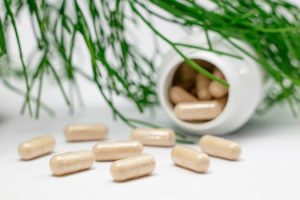AI-Powered Health Optimization Apps: Your Personal Doctor
If you’re like most people, you probably have a smartphone that you use for everything from social media to controlling your smart home devices. But did you know that your smartphone could also act as your personal doctor? With the rise of artificial intelligence (AI), there are now health optimization apps available that use AI technology to help you manage your health and wellbeing. These apps have the potential to revolutionize the way we take care of our bodies and minds, making it easier and more convenient than ever before. In this article, we will explore the world of AI-powered health optimization apps and how they can benefit you in your daily life.
The Rise of AI in Health Apps
Artificial intelligence has been steadily making its way into our daily lives, from virtual assistants like Siri and Alexa to self-driving cars. But one area where AI is making a significant impact is in healthcare. Health optimization apps, powered by AI technology, are now being used to help people manage and improve their health in a more personalized and efficient way.
These apps use machine learning algorithms to analyze large amounts of data, such as your medical history, activity levels, and eating habits, to provide personalized health recommendations. This allows for a more accurate and tailored approach to managing your health, rather than a one-size-fits-all approach.
Benefits of AI-Powered Health Optimization Apps
1. Easily Track Your Health Data
One of the significant benefits of using AI-powered health optimization apps is the ability to easily track your health data. These apps can collect and analyze various types of data, such as your activity levels, sleep patterns, heart rate, and blood pressure, to name a few. This information is then used to provide you with insights into your health and areas where you can improve.
Some apps even have features that allow you to connect with your wearable devices, such as fitness trackers, to get an even more accurate picture of your health. This makes it easier to monitor your progress over time and identify any potential health issues before they become too serious.
2. Personalized Recommendations
AI-powered health optimization apps take into account your unique circumstances and health goals to provide personalized recommendations. This means that the advice you receive is tailored to you and your needs, rather than a general recommendation that may not be as effective.
For example, if you have a history of heart disease in your family, the app may suggest a diet and exercise plan to help reduce your risk of developing the condition. Or if you’re looking to improve your sleep, the app may suggest changes to your bedtime routine based on your sleep patterns and habits.
3. Convenient and Accessible
One of the most significant drawbacks of traditional healthcare is the inconvenience and inaccessibility. It can be challenging to schedule appointments with your doctor or specialist, and the costs of healthcare can add up quickly.
However, with AI-powered health optimization apps, you have access to personalized healthcare at your fingertips. You can monitor your health and receive recommendations anytime and anywhere, eliminating the need for physical appointments and costly medical bills.
Challenges and Limitations of AI-Powered Health Apps
1. Data Privacy and Security Concerns
One of the biggest concerns surrounding AI-powered health apps is data privacy and security. These apps collect and analyze personal health data, which can be sensitive and vulnerable to cyber-attacks.
Therefore, it’s essential to ensure that the app you’re using has strict security measures in place to protect your data. You should also familiarize yourself with the app’s privacy policy before using it to understand how your data is being used and shared.
2. Lack of Human Interaction
While AI-powered health apps can be a convenient option for monitoring and managing your health, they lack human interaction. This can be problematic for individuals who prefer a more personal approach to their healthcare or for those who require a more hands-on treatment plan.
However, many apps offer the option to connect with real healthcare professionals for additional support and guidance.
In Conclusion
AI-powered health optimization apps have the potential to become your personal doctor, providing you with personalized health recommendations and giving you the power to take control of your wellbeing. However, it’s essential to choose a reliable and secure app and still maintain regular visits with your healthcare provider for a holistic approach to your health.
So, why not give an AI-powered health optimization app a try and see how it can improve your overall health and wellbeing today?











